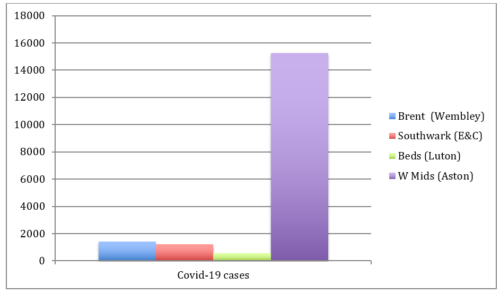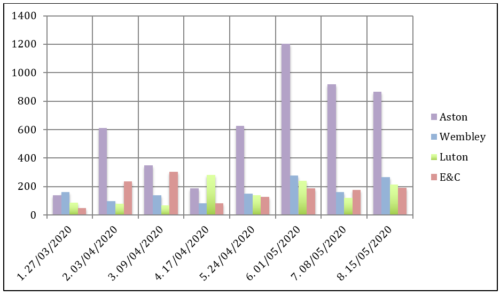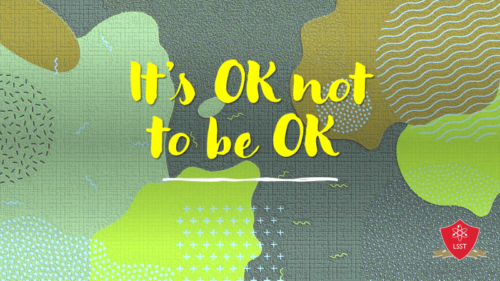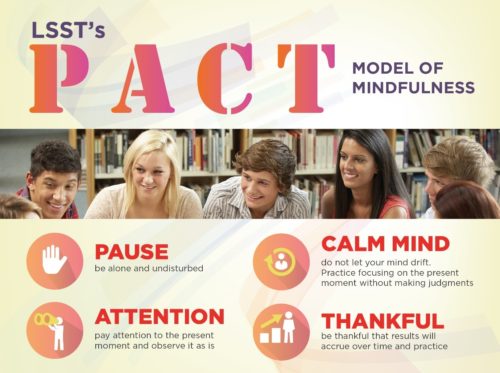Mental Health Awareness, Student Support and LSST: A Lockdown Narrative for Educators and Health Professionals
Article Date | 22 June, 2020
Through a long career in Health and Higher Education (HE), I have worked with and alongside mental healthcare from a variety of perspectives, both personal and professional, supporting individuals and recognising the impact mental health deterioration has on families and communities.
Since the lockdown (23th March 2020), concerns for Mental Health have never been so inordinate. The Government’s move to impose a national lockdown, responding to the COVID-19 contagion, was unprecedented and while the aim was to protect the public health of the nation and to safeguard health and social care services, the impact on the nation’s mental health could not have been predicted then – and may take many more years yet to do so.
Having worked in a variety of HE settings, I could not have anticipated the level of support and care that our students required during the lockdown. However, the senior team and I were clear that the work of LSST’s Student Support was to reach out to our students and try to contain their anxieties during the period isolation of lockdown (see: How Students Can Confront COVID-19 Stress Whilst Studying From Home).
The Mental Health Foundation identified that loneliness is a significant feature of the lockdown and feeling lonely can be intensified in the presence of poor mental health (MIND) increasing anxiety, uncertainty and insecurity.
The Office for Students (OfS) published a briefing note on Supporting Student Mental Health, during the COVID-19 crisis (April 2020). This briefing note, part of a series of publications from the regulator, recognising that issues associated with the lockdown (lack of face-to-face peer support and physical contact, financial pressures and the rapid move to online learning) has had a significant impact on students. In particular, the OfS recognises that those most at risk during lockdown are vulnerable students with on-going mental health needs.
What does this mean for Student Support services?
As an HE provider, LSST is committed to: “effective, meaningful and inclusive student engagement requires continuous effort to ensure the development of new and innovative approaches” (QAA 2018).
As a widening access and participation HE provider, with campuses situated in London Wembley, London Elephant and Castle, Luton and Aston (Birmingham), numerous students who chose to study with LSST are mature learners returning to education and many have carer responsibilities. Consequently, the levels of support, advice and guidance required by the student population of LSST can be diverse and complex.
At the beginning of the lockdown, it became obvious to me that the national anxiety and concerns associated with the contagion had an additional impact on, and significantly amplified, the support needs of our students in the geographic areas in which our campuses are based. An analysis of Government statistics demonstrates a correlation between the instances of COVID-19 in campus geographical areas (figure 1) and the increase in queries, issues and anxieties received by Student Support Teams (figure 2) after week 5 of lockdown. These anxieties included the ability to juggle child care with online studies, being able to follow and engage in webinars without peer support, having appropriate access to Wi-Fi and IT resources (digital poverty) and financial concerns.


This unprecedented level of contact made to Student Support Teams by students (figure 2) required a coordinated approach to ensure students received timely support, advice and guidance. Also, it is highly probable that the murder of George Floyd amplified many of the barriers and injustices experienced by our BAME community. A point acknowledged by the OfS in a recent webinar ‘Supporting Black, Asian and minority ethnic students during the coronavirus pandemic’ (OfS, 2020) indicated that the outcry following the death of George Floyd amplifies many of the barriers experienced by the BAME community.
As Head of Student Support and Enhancement, I initiated my section of LSST’s COVID-19 contingency plan to move to online learning and ensure social distancing. Immediately as lockdown commenced all students received an email from student support to say ‘we are still here for you’. Enhanced communication methods were initiated between team members using Microsoft ‘Teams’ software ™ and regular calls using Internet communications software. This meant that even though campus teams were working remotely, individual staff could react quickly, identifying students that required additional support and reassurance, particularly about accessing online learning and teaching and financial hardship.
When a student made contact with Student Support, the team member who took the call followed up the student at regular intervals in forthcoming weeks and became the ‘contact person’ that the student could go to with any query and be signposted or advised as necessary. Also, since the contingency plan was initiated a cohesive link has been established between Student Support and Academic Support teams to ensure vulnerable students have academic support plans in place to support studying remotely.
Mental health and mindfulness
As a manager working remotely supporting Student Support Teams to support students, one of the most important messages to come out of the crisis is that it is: ‘OK not to be OK’.

The lockdown has impacted each of us in different ways. I have espoused the importance of embracing mindfulness with students. Additionally, LSST has worked closely with its Student Union to propose a student mindfulness model called PACT:

Mindfulness is a habit an individual can adopt that increases wellbeing, whilst various techniques can be used to enhance mindfulness. For me in my busy personal and professional life, mindfulness in lockdown is simply stopping and being present in the moment. Breathing deeply I savour what I can see around me. I concentrate on colours, the feeling of my feet on the ground and the sounds of my breathing.
I also encourage student support teams to be ‘mindfully aware’, when engaging with students during COVID-19. Being mindfully aware with others means listening to what is an individual is saying, trying not ‘rush in’ and ‘fix’ the problem, to try to control natural personal impulses, so to be more self-aware. A positive message to coming out of the crisis that COVID-19 has imposed upon us is an understanding that the world is a better place if we can ‘be kind’.
Mental health impacts people in different ways and as a leader and manager of Student Support at LSST, I have frequently returned to the words of Roald Dhal in his 1988 BBC World Service interview:
“I think probably kindness is my number one attribute in a human being. I’ll put it before any of the things like courage or bravery or generosity or anything else.
Brian Sibley: Or brains even?
Oh gosh, yes, brains is one of the least. You can be a lovely person without brains, absolutely lovely. Kindness – that simple word. To be kind – it covers everything, to my mind. If you’re kind that’s it.”(BBC World Service, 1988)
Each time I ‘checked in’ with the team I started our conversations with ‘how are you doing?’. Taking time to be kind and recognising we were all, going through something very strange indeed. Through lockdown, I have become more understanding of our student support teams, and the individuals within them. In turn, the teams have become more understanding of the impact of lockdown on our students, staff and the organisation as a whole.
Throughout lockdown, we all have had to learn new ways of working, not only with each other and our students but above all else, the role of Student Support in lockdown has been to ensure that our most vulnerable students with mental health needs get the help and advice they need.
If you are affected by any of the issues raised in this blog, you can contact:
The Samaritans (open every day of the year) – phone 116 123 or email jo@samaritans.org Mind, the mental health charity – phone 0300 123 3393 or file://localhost/see https/::www.mind.org.uk: information-support:helplines
Further reading
A new online platform delivering targeted and high-quality student mental health support: https://www.officeforstudents.org.uk/news-blog-and-events/press-and-media/new-funds-to-boost-student-mental-health-through-pandemic/
COVID-19 lockdown: consolidating a student mindfulness model: https://www.lsst.ac/news/pact/
How Students Can Think Positive During COVID–19: https://www.lsst.ac/blogs/positive_thinking/
How Students Can Confront COVID-19 Stress Whilst Studying From Home: https://www.lsst.ac/news/covid_19_stress_guide/
Mental Health in Higher Education and the Sector Challenges Ahead: https://www.lsst.ac/blogs/mental_health_in_he/




